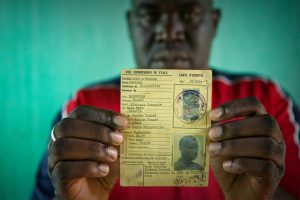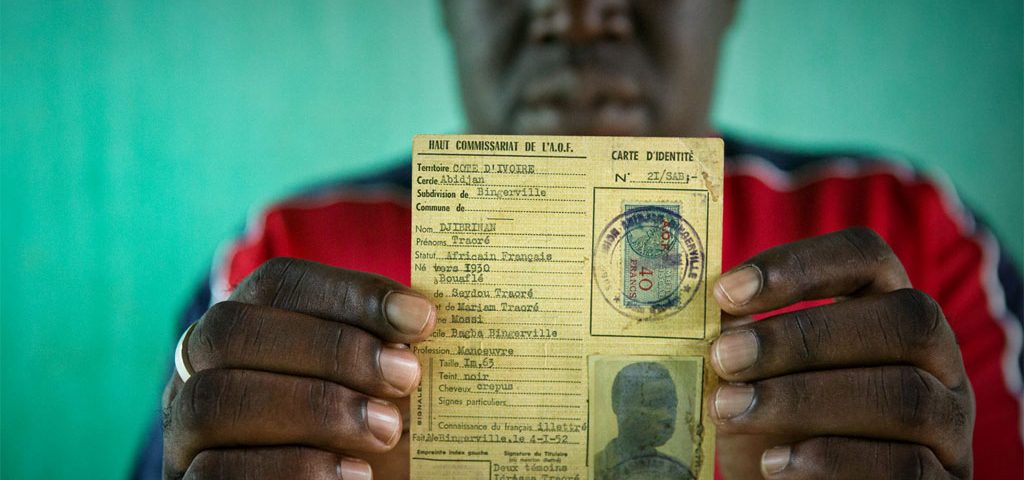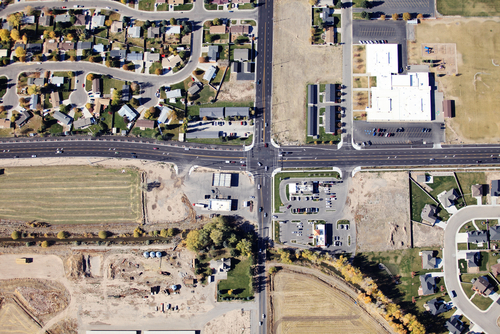


A different approach to political competition
22 June 2016
Cogito, the Newsletter of Research at Sciences Po
27 June 2016The political and social life of identification papers in Africa is a project supported by the National Agency for Research for the 2016-2019 timeframe, and coordinated by Richard Banégas (Sciences Po-CERI) & Séverine Awenengo Dalberto (CNRS-CEMAf)
 This project proposes to study the “governmentality of papers” in sub-Saharan Africa from the post-war period to the current era of global dissemination of biometrical identification norms. What inspired this research is that many of the crises experienced by contemporary African societies are citizenship crises that focus on the issue of rights, and bring into play the legal and political bases of their recognition, primarily “papers” (identity, voter, and residence cards, passports, nationality certificates, land titles, and property certificates). Some conflicts are even called “identification wars” (Ivory Coast).
This project proposes to study the “governmentality of papers” in sub-Saharan Africa from the post-war period to the current era of global dissemination of biometrical identification norms. What inspired this research is that many of the crises experienced by contemporary African societies are citizenship crises that focus on the issue of rights, and bring into play the legal and political bases of their recognition, primarily “papers” (identity, voter, and residence cards, passports, nationality certificates, land titles, and property certificates). Some conflicts are even called “identification wars” (Ivory Coast).
The accelerated adoption of biometrics in societies enables a securing of rights, but also produces new tensions around censuses and titling. The project also examines the correlation that appears between identification provisions and political violence. But it is not limited to conflict situations: on the contrary, it seeks to take into account the use of papers in times of crisis and in routine times to analyse the ordinary relationships of citizens to the public sphere. The goal is to study citizenship practices in action and the dissemination of bureaucratic reasoning in societies that resist the latter.
 By addressing “papers” from the perspective of comparative historical sociology, the idea is to understand how the material schemes of identification and identity attributions are, on the one hand, a response to state efforts to include, exclude and control individuals, and on the other, a contributor to the emergence of new moral and political subjectivities. The objective of this program is to convey the historicity and ambivalence of these processes, to explore the plurality of the bodies producing documents and the complexity of the relationships that individuals form with these documents and institutions. Beyond an analysis of carding as technology of power, it aims to provide an account of the “social life of papers” to better grasp, from the grassroots, the ordinary practices of citizenship.
By addressing “papers” from the perspective of comparative historical sociology, the idea is to understand how the material schemes of identification and identity attributions are, on the one hand, a response to state efforts to include, exclude and control individuals, and on the other, a contributor to the emergence of new moral and political subjectivities. The objective of this program is to convey the historicity and ambivalence of these processes, to explore the plurality of the bodies producing documents and the complexity of the relationships that individuals form with these documents and institutions. Beyond an analysis of carding as technology of power, it aims to provide an account of the “social life of papers” to better grasp, from the grassroots, the ordinary practices of citizenship.
The program uses a comparative approach combining case studies of a dozen sub-Saharan African countries: South Africa, Burkina Faso, Cameroon, Côte d’Ivoire, Kenya, Mali, Mauritania, Nigeria, Uganda, Rwanda, Senegal, and Chad. The project involves two institutional partners in France (Sciences Po’s Centre for International Research and the Institute of African Worlds (IMAf), collaboration with African universities (including Wits University in Johannesburg) and fifteen researchers, historians, political scientists and anthropologists who are experts on citizenship issues in their respective fields.




